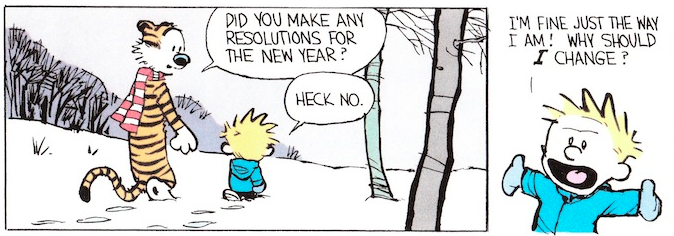My browser’s bookmark bar is prime digital real estate. I see that bar no matter what tab I use or page I browse, and often single click to access its prominent collections.[1]
In the middle I’ve placed On the Shortness of Life by Seneca the Younger (and next to that is a link to a comic I’ve titled Man’s Failure by zenpencils.com).[2]
I first saw this essay a few hours into my shift at the front desk of a hotel in college. I had discovered Tim Ferriss and The Four Hour Workweek a few weeks earlier, and during downtime perused Tim’s blog when he published a post on it.
That was April 24th, 2009. Exactly ten years ago.
In that time I’ve repeatedly revisited the essay, and found new parts jump out at me each time. As it’s my 10th anniversary of reading this timeless essay I will attempt[3] to share my thoughts on it:
It is not that we have a short space of time, but that we waste much of it.
I often recommend this essay to friends, family, and online strangers. When I do I suggest they read the first few paragraphs, if anything at all, because from the outset it’s made clear: stop wasting time!
Seneca later shares some ways time is wasted and his suggestions for its worthy use, but we’ll cover those later. For now it’s enough to ask the reader to evaluate their usage of the days and minutes we’re given.
Life, if you know how to use it, is long. But one man is possessed by an avarice that is insatiable, another by a toilsome devotion to tasks that are useless; one man is besotted with wine, another is paralyzed by sloth; one man is exhausted by an ambition that always hangs upon the decision of others, another, driven on by the greed of the trader, is led over all lands and all seas by the hope of gain; some are tormented by a passion for war and are always either bent upon inflicting danger upon others or concerned about their own; some there are who are worn out by voluntary servitude in a thankless attendance upon the great; many are kept busy either in the pursuit of other men’s fortune or in complaining of their own; many, following no fixed aim, shifting and inconstant and dissatisfied, are plunged by their fickleness into plans that are ever new; some have no fixed principle by which to direct their course, but Fate takes them unawares while they loll and yawn
I tried to cut the above quote down…but there’s too much truth to leave out. About 2,000 years later and all of this applies to us, or at least people we know or hear about.
No one is to be found who is willing to distribute his money, yet among how many does each one of us distribute his life!
We often hear time = money. Seneca points out that of the two, time is worse to waste, and usually the first thing wasted.
You will hear many men saying: “After my fiftieth year I shall retire into leisure, my sixtieth year shall release me from public duties.” And what guarantee, pray, have you that your life will last longer?
This was a big driver behind my decision to try to retire early.[4] I remember a saying but can’t recall its source:
“When we’re young we have energy and time but no money. When we’re middle-aged we have energy and money but no time. When we’re old we have money and time but no energy.”
What follows in the essay is a description of famous Romans who had everything most people may crave: fame, riches, power. And they despised them in hopes of leisure and time!
He then continues:
It takes the whole of life to learn how to live, and—what will perhaps make you wonder more—it takes the whole of life to learn how to die.
It reminds me of Thoreau: “I went to the woods because I wished to live deliberately…and not, when I came to die, discover that I had not lived.”
If each one could have the number of his future years set before him as is possible in the case of the years that have passed, how alarmed those would be who saw only a few remaining, how sparing of them would they be!
I have a Chrome extension called Death Clock. Every time I open a new tab I see an actuarial estimation of how many days I have left complete with hours and seconds counting down in realtime.
A bit morbid, but hey- memento mori.
I hear that one of these pampered people—provided that you can call it pampering to unlearn the habits of human life—when he had been lifted by hands from the bath and placed in his sedan-chair, said questioningly: “Am I now seated?” Do you think that this man, who does not know whether he is sitting, knows whether he is alive, whether he sees, whether he is at leisure?
One of my favorite insights from Seneca: is this wealthy man, attended to hand and foot, bathed and carried, really at leisure? Or does he only boast in the appearance of leisure, and is actually a prisoner to sloth?
Of all men they alone are at leisure who take time for philosophy, they alone really live; for they are not content to be good guardians of their own lifetime only. They annex ever age to their own; all the years that have gone ore them are an addition to their store.
I don’t think philosophy is the only way to live a fulfilling life, but having a keen awareness of self and time does help. Many of my coworkers take mindfulness classes, and that word tends to be followed by “meditation.” I am not a regular practitioner of meditation [5], but I am a regular examiner of my life. Be it driving, walking, reading, or looking out the window, I place my life under the magnifying glass and review its parts with high frequency. It’s daunting at times, but also helpful. I recommend it 🙂
Seneca continues extolling the virtues of philosophy, which is fine with me when taken in the definition I just shared. And then he says:
Those who forget the past, neglect the present, and fear for the future have a life that is very brief and troubled
This resonates with me because I want to learn from the past (mine and others’) to make a better future, which informs me what I need to do now to make that happen.
Note that I take it with a grain of salt; circumstances are always changing, and we can’t plan for every eventuality. However, I find more success when I have a plan that goes sideways than just having no plan.
Take now some part of your time for yourself as well. And I do not summon you to slothful or idle inaction, or to drown all your native energy in slumbers and the pleasures that are dear to the crowd. That is not to rest.
I love this part. Sleep, relaxation, recreation are good, but to fully rest we must also take time for our minds. I’m reminded of various memes showing people getting chores done (or binge watching Netflix) while a ghostly Anxiety figure looms behind them.
I must end here. Stoicism in the age of now is to think about what you’re doing and to do it with purpose. Work, relax, and live in balance.
[1] Why don’t I hide my bookmark bar to remove distractions/increase focus on what I’m working on/looking at? Because I like the reminders I’ve chosen to be there! I don’t think that all distractions are bad; sometimes we need a wakeup call from the routines/habits we find ourselves in.
[2] Why did I give it this name in my bookmark bar? Because I like it more than the title given by the author. “Man’s Failure” is sufficiently pithy, telling me the story at a glance: “This is man’s failure; do not repeat it!”
[3] I’m concerned about my ability to add more to this topic than what has been said, by Tim and many others. With the #1 goal of this site in mind, I’ll try to make it short and meaningful so your time isn’t wasted. I also expect my perspective to continue to change; it would be fun to write about this every 10 years!
[4] Emphasis on “try.” I’ll post more on this journey in the coming months/years, but it won’t be the focus of this site. Others have done it way better than I ever could have, including rootofgood.com and mrmoneymustache.com
[5] I’ve tried multiple ways and formats. I don’t like guided meditation apps or recordings, and instead prefer to just close my eyes and listen to nature sounds. Still a work in progress!






